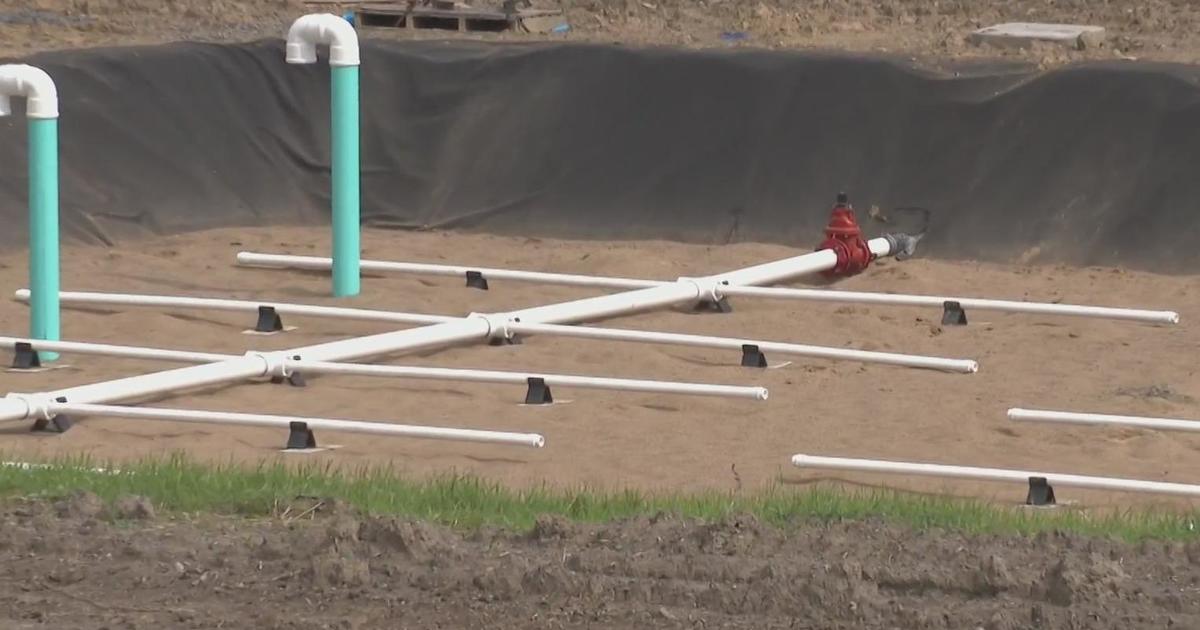New Wearable And Portable Treatment For Mesothelioma Helps Patients Live Longer
PITTSBURGH (KDKA) -- Navy veteran Terry O'Keefe was enjoying retirement with cross-country RV trips to the national parks.
But something was wrong.
"I had to go from the shower to the bed and almost passed out," said O'Keefe.
He went to the hospital and was diagnosed on the road, then diagnosed again in Erie. He had a rare type of cancer called mesothelioma. It comes from the lining of the lungs and is associated with asbestos exposure decades before.
O'Keefe got surgery, chemotherapy, and radiation — the mainstays of treatment. But they don't work that well. The prognosis is typically 12 to 15 months. Then O'Keefe's doctor offered him something that the FDA approved late last year — a wearable device called Optune.
"I said, 'Yes, anything you can do to prolong my life. I've got stuff we're trying to do,"' O'Keefe told his doctor.
"There are four electrode pads, two on the front and two on the back. It's hooked up to a generator, a battery pack, and the electrical field goes in this direction. So it crosses in an X type pattern across the patient's chest," said Allegheny Health Network radiation oncologist Dr. Zachary Horne while demonstrating the setup.
It uses alternating electrical currents, a few hundred times a minute. This interferes with the rapidly dividing cancer cells.
"Because they are attuned, very specifically to a cell size, they impact the mesothelioma cells, and they leave everything else essentially alone," Dr. Horne said.
It only works when the device is on so patients need to wear it as much as possible. Ideally, 18 hours a day. They can carry the battery in a backpack and plug it into the wall while they're sleeping.
Because the disease only affects 3,000 people a year, it was approved based on non-randomized Phase 2 trials that showed it increased life expectancy to 18 months. The main side effect -- skin irritation.
"It burns my skin. My skin is all red. If I sweat, the glue comes loose," O'Keefe said. "If [the electrodes] get loose, they get hot. And they'll burn with blisters."
Was there any issue getting it covered by insurance?
"They won't cover it. Medicare won't cover it," said O'Keefe. "And the VA keeps putting us off."
"Medicare doesn't currently have a policy regarding the use of the device. So oftentimes, it is not covered. But what the company has in place is they have a patient support program," says Dr. Horne. "If it's denied, they'll make appeals."
"In the event that it remains uncovered, they have a patient assistance program that covers almost the entire cost," Dr. Horne added.
O'Keefe is followed by CT scans and the pads are adjusted to target any tumor that has escaped.
"All we're trying to do is maintain their quality of life and prolong disease progression for as long as possible," Dr. Horne says.
"Right now, I can still walk. I'm cutting down trees. We're kayaking, hiking," O'Keefe said. "I'm still doing things and I'm not ready to give up."
He hopes his experience helps the next patient.



